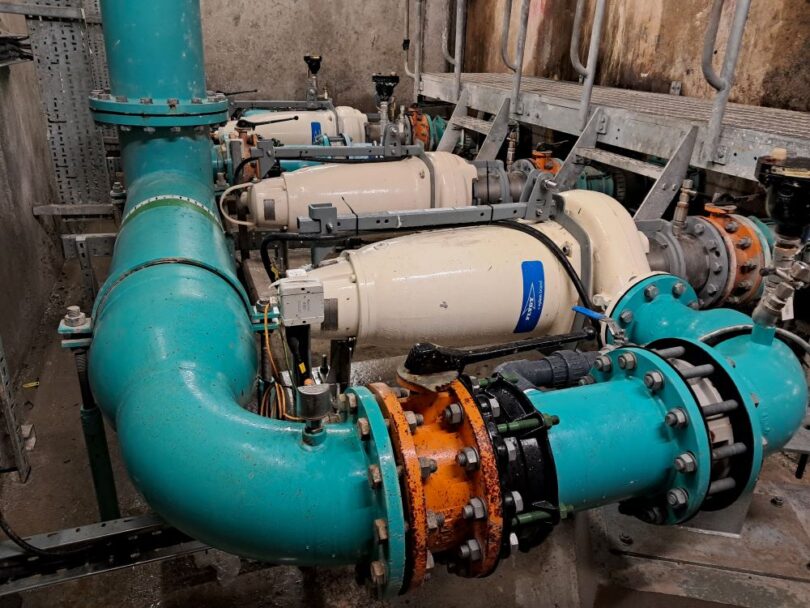Work is under way to replace ageing dry well pumps at Scottish Water’s Loch Eck clean water plant in Dunoon. To improve reliability and operational efficiency of the works, outdated dry well pumps will be replaced with new pumps that operate in both wet and dry conditions.
WGM Engineering, an RSK Group company based in Glasgow, is undertaking the work for Scottish Water. The upgrades are particularly important to the functioning of the well, owing to its tendency to flood.
WGM Assistant Project Manager Robbie Lamb said: “The dry well at Loch Eck is designed to aid excess water dispersal from the site. An important part of this is the backwash process powered by backwash pumps, and involves reversing the flow of water through the filter to dislodge and flush out the trapped particles. This backwash cycle is crucial for restoring the filter’s permeability and ensuring effective, continuous filtration. Regular backwashing also prolongs the lifespan of the filter media and helps maintain consistent water quality.”
The well at the centre of the works is prone to flooding, which presents maintenance issues, as the existing pumps are designed for dry use only. Robbie said: “By refitting new backwash pumps engineered to function in both wet and dry conditions, the redesigned system will ensure continued and efficient operation. The replacement pumps have been designed to operate in challenging conditions as normal, offering Scottish Water increased pump efficiency, reduced maintenance needs and enhanced flood resilience.
“The location of the pumps in the well presents a particular challenge for the engineering team. The work is being conducted in a category 2 confined space; this means there is limited access and egress, restricted ventilation or other physical limitations. Category 2 spaces require careful management and precautionary measures owing to potential risks that could harm individuals working within them. Consequently, meticulous planning and strict safety protocols are required.”
Further complexity has been added by the need to keep the system online and functioning at all times during the upgrade works. Robbie explained this meant the three pumps could only be replaced one at a time. “The well operates with three individual pumps, so to keep it online and running, only one can be worked on. Keeping the remaining two pumps operational required careful scheduling of a phased approach by the team to ensure the water site was unaffected by the work.”
Robbie said: “This project demonstrates the value of thoughtful engineering and careful planning, especially in confined space environments. By replacing the existing pumps with Flygt N3153 units, we not only mitigated the flooding risk but also maintained full operational continuity throughout the installation process. The Flygt N3153 pumps were chosen because they are a high-efficiency submersible pump designed for handling wastewater, sewage and other demanding fluids in municipal, industrial and agricultural settings. They are self-cleaning and prevent clogging, meaning they are more efficient, have a longer lifespan and reduce the potential for flood incidents. Our team’s expertise in confined space work and phased project management ensured that the client experienced no downtime, while benefitting from a modern, efficient pumping system.”







